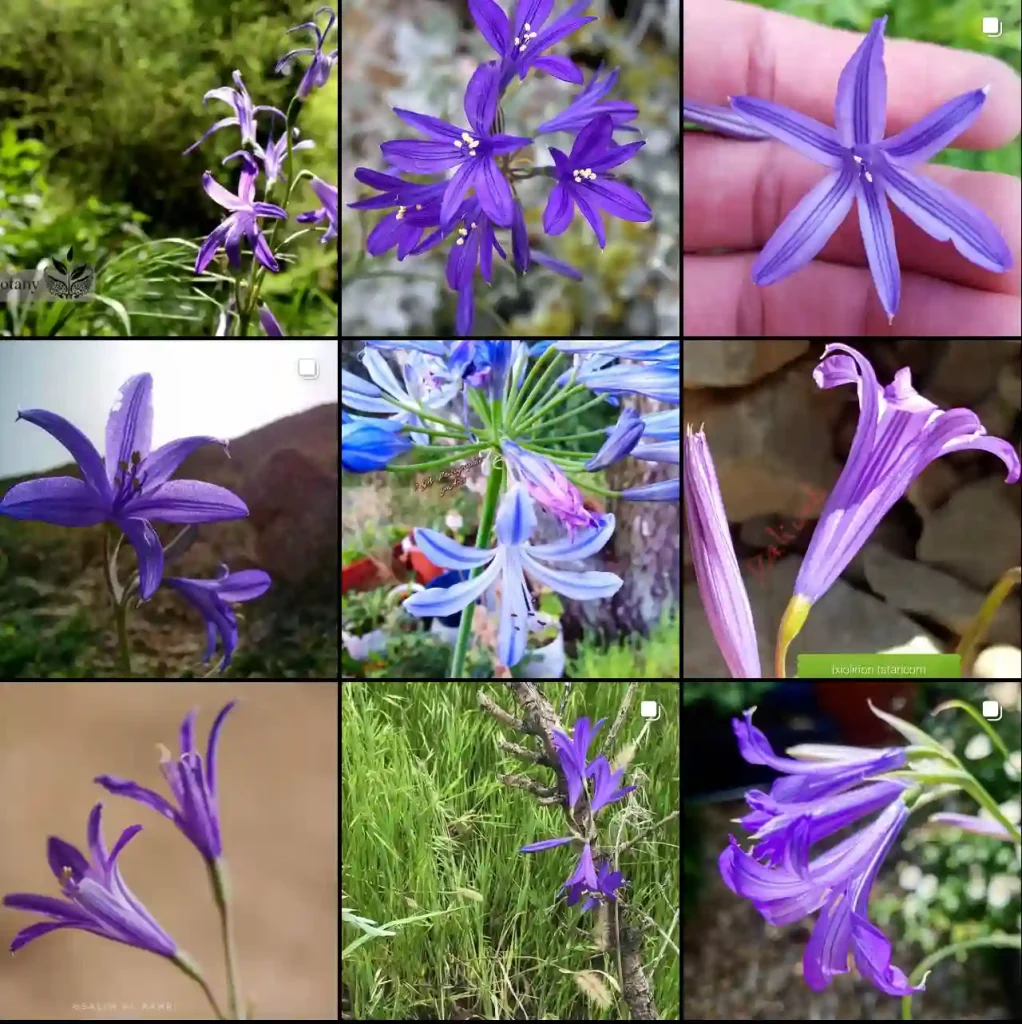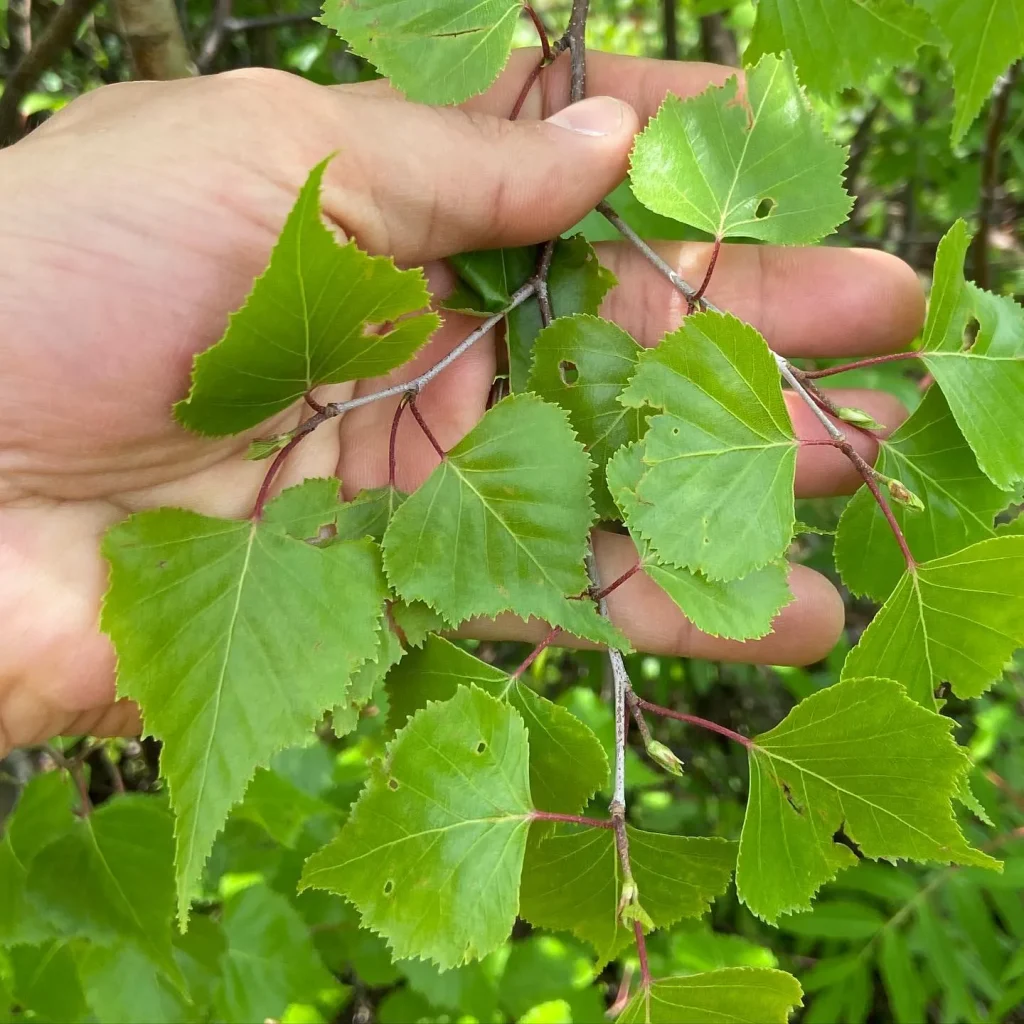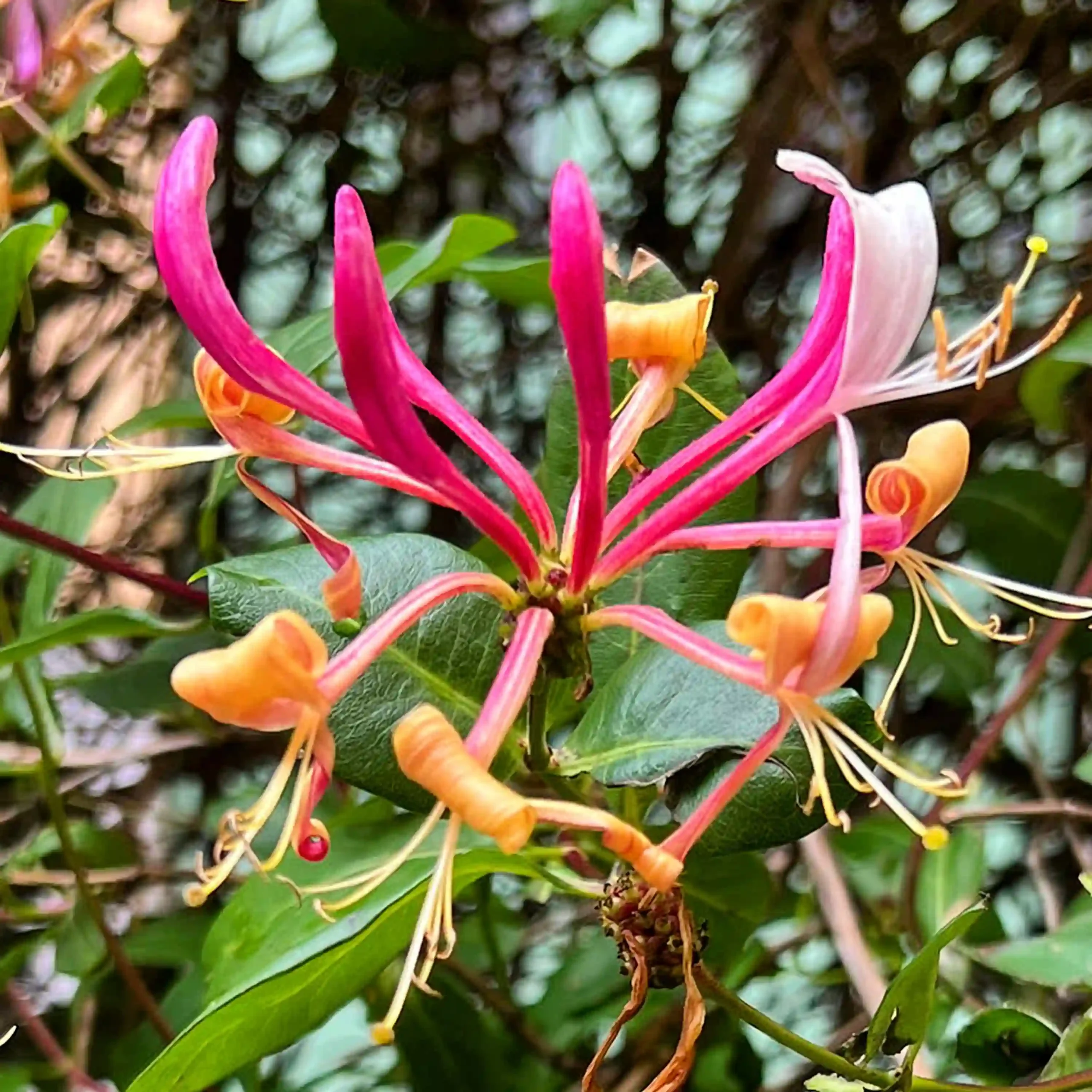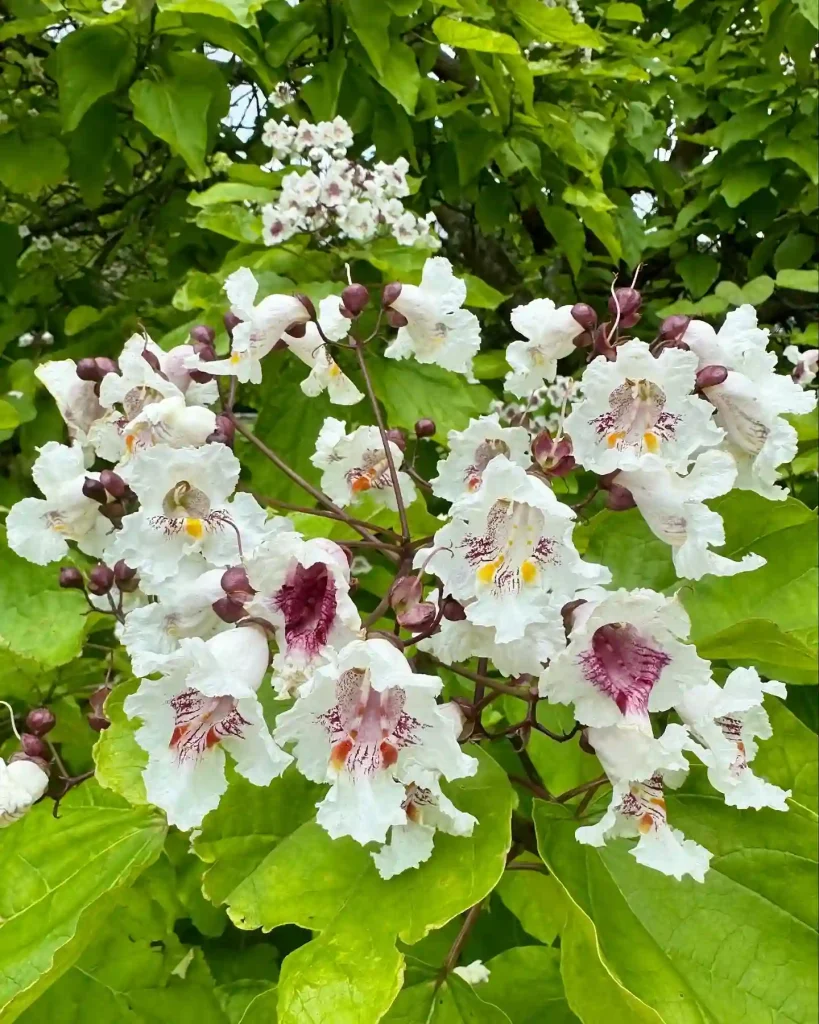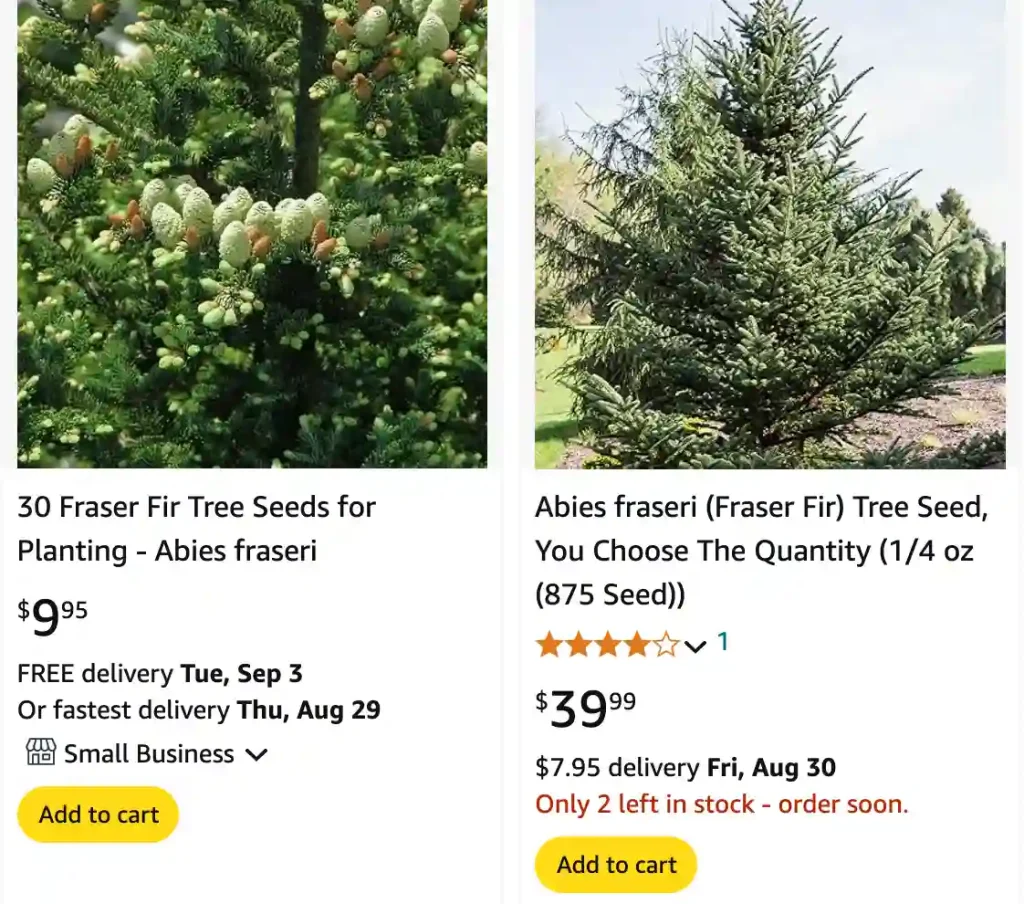
Where Do Fraser Firs Grow?
Fraser Firs are native to the Appalachian Mountains of North Carolina, Tennessee, and Virginia. These trees thrive at higher elevations, typically between 3,500 and 6,000 feet, where the air is cool and moist. They are well-adapted to the rugged, mountainous terrain and prefer well-drained, acidic soils.
48 Species in Genus Abies
Are Fraser Fir Trees Toxic to Cats?
No, Fraser Fir trees are not toxic to cats. Unlike some plants that can be harmful to pets, Fraser Firs are safe for your feline friends. However, it’s always wise to monitor your pets to ensure they don’t chew on or ingest any part of the tree, as excessive consumption of any plant material can potentially cause digestive upset.
How Fast Do Fraser Firs Grow?
Fraser Firs grow at a moderate rate, typically around 6 to 12 inches per year. This rate can vary based on soil conditions, climate, and care practices. They are slow to establish but can eventually reach heights of 30 to 50 feet, making them a solid choice for both landscaping and Christmas trees.
How Long Do Fraser Fir Trees Last?
In terms of longevity, Fraser Fir trees can live for several decades. As Christmas trees, they generally last about 4 to 6 weeks after being cut, provided they are kept well-watered and in a cool environment. When planted in the ground, they can live for 50 to 75 years, making them a durable and long-lasting addition to your landscape.
Is Fraser Fir a Good Christmas Tree?
Absolutely! Fraser Fir is one of the most popular choices for Christmas trees. They are known for their strong branches, which can hold heavy ornaments, and their pleasant, subtle fragrance. Their needles are also less likely to shed, which helps keep your holiday decorations looking fresh throughout the season.
Where to Buy Fraser Fir Trees to Plant?
You can buy Fraser Fir trees from a variety of sources. Local nurseries and garden centers often carry them, especially in areas where they are suited to the climate. Additionally, online retailers and specialized tree farms offer a range of Fraser Fir saplings. Be sure to choose a reputable seller to ensure you’re getting a healthy tree.
Are Fraser Fir Trees Toxic to Dogs?
No, Fraser Fir trees are not toxic to dogs. They are generally safe for dogs, but as with cats, it’s important to prevent your dog from chewing on or ingesting parts of the tree, as it could cause mild gastrointestinal issues.
Can Goats Eat Fraser Fir Trees?
Goats are known for their browsing habits and will eat a variety of plants, including conifers like Fraser Fir. While it’s not harmful for goats to consume small amounts of Fraser Fir, it’s not ideal for their diet. Too much of any plant material can lead to digestive problems.
Do Fraser Fir Drop Needles?
Fraser Firs are known for their needle retention. When used as a Christmas tree, they generally drop fewer needles than many other species. However, they will shed some needles over time, especially if they are not properly cared for. Regular watering can help minimize needle drop.
Do Fraser Firs Smell?
Yes, Fraser Firs have a pleasant, mild fragrance that many people associate with Christmas. The scent is less strong compared to other Christmas trees like the Douglas Fir, making it a good choice if you prefer a subtler aroma.
Fraser Fir vs Balsam Fir
Fraser Firs and Balsam Firs are often compared due to their similarities. Both have strong branches and retain needles well. However, Fraser Firs have a more uniform shape and a stronger, more upright growth habit. Balsam Firs tend to have a stronger fragrance and a more traditional Christmas tree look.
Fraser Fir vs Douglas Fir
Douglas Firs are another popular choice for Christmas trees. While Fraser Firs have a more classic tree shape and better needle retention, Douglas Firs are known for their fuller appearance and stronger fragrance. Douglas Firs grow faster but may not hold up as long in the home as Fraser Firs.
Fraser Fir vs Noble Fir
Noble Firs are known for their unique, upright branches and bluish-green color. They are more expensive and less widely available than Fraser Firs. Noble Firs have a more exotic look and a subtle fragrance, whereas Fraser Firs are more traditional and easier to care for.
Fraser Fir vs Blue Spruce
Blue Spruces are known for their striking blue-green needles and symmetrical shape. They are more rigid and can be prickly to the touch, unlike the softer needles of the Fraser Fir. Blue Spruces are also slower growing and can be harder to find as Christmas trees compared to Fraser Firs.
Fraser Fir vs Canaan Fir
Canaan Firs are very similar to Fraser Firs and are often confused with them. Canaan Firs are native to a similar region and have a similar appearance. However, Fraser Firs are generally preferred for their superior needle retention and more consistent growth pattern.
Fraser Fir vs Norway Spruce
Norway Spruces are known for their classic Christmas tree shape and fast growth. However, they have a tendency to shed needles quickly compared to Fraser Firs, which have better needle retention. Norway Spruces also have a stronger, more distinct aroma.
Fraser Fir vs Concolor Fir
Concolor Firs, also known as White Firs, have a unique citrus-like fragrance and a soft, blue-green appearance. They are less common as Christmas trees compared to Fraser Firs but offer a different aesthetic and scent profile. Concolor Firs are generally more tolerant of a variety of conditions but don’t hold up as well indoors as Fraser Firs.
Fraser Fir vs Nordmann Fir
Nordmann Firs are prized for their long-lasting needles and dense foliage. They are less aromatic than Fraser Firs but offer excellent needle retention and a fuller appearance. Nordmann Firs are also more expensive and less commonly found in the U.S. compared to Fraser Firs.
Fraser Fir vs Spruce
Spruces, in general, have a more traditional Christmas tree shape with stiffer branches. They are often less tolerant of indoor conditions and shed needles more quickly than Fraser Firs. Fraser Firs offer a better balance of appearance, durability, and fragrance.
Fraser Fir vs Grand Fir
Grand Firs are known for their impressive size and elegant appearance. They have a pleasant fragrance but are less common as Christmas trees compared to Fraser Firs. Grand Firs can also be more challenging to care for indoors, as they tend to drop needles more rapidly.
Fraser Fir vs Scotch Pine
Scotch Pines are known for their long-lasting needles and strong branches. They have a more traditional Christmas tree look and a stronger aroma compared to Fraser Firs. However, Fraser Firs are generally preferred for their superior needle retention and overall appearance.
How to Care for Fraser Fir Trees?
To care for a Fraser Fir tree, whether it’s a Christmas tree or a landscape tree, keep it well-watered and placed in a cool location. For Christmas trees, regularly check the water level and trim the base of the trunk if needed to ensure optimal water absorption.
How to Propagate Fraser Fir?
Fraser Firs are typically propagated through seeds or cuttings. Seeds are collected from mature cones and require a period of cold stratification before planting. Cuttings can be taken from healthy trees, treated with rooting hormone, and placed in a moist, well-drained medium to encourage root development.
Benefits of Fraser Fir Trees
Fraser Fir trees are valued for their classic Christmas tree appearance, excellent needle retention, and pleasant fragrance. They are also hardy and adaptable to various soil types, making them a reliable choice for both indoor and outdoor use.
Common Problems with Fraser Fir Trees
One common problem with Fraser Fir trees is needle drop, which can be exacerbated by indoor conditions or insufficient watering. Pests like spider mites and diseases such as root rot can also affect Fraser Firs, particularly in less-than-ideal growing conditions.
Fraser Firs are a versatile and popular choice for both Christmas trees and landscape planting, offering a range of benefits and aesthetic appeal. Whether you’re considering them for a festive occasion or as a long-term addition to your garden, they are sure to impress with their beauty and durability.
If i die, water my plants!
